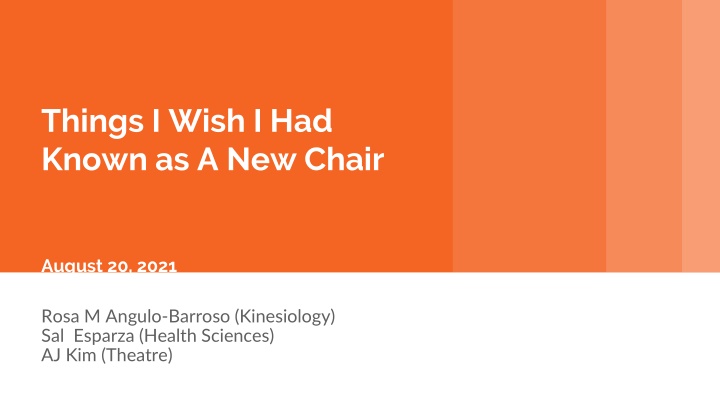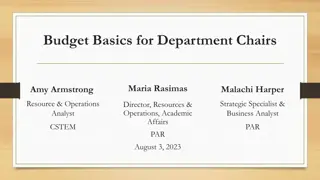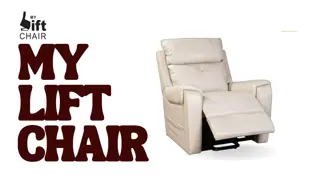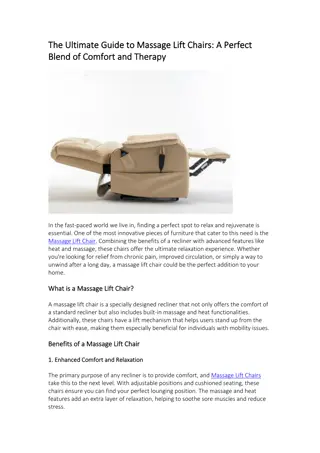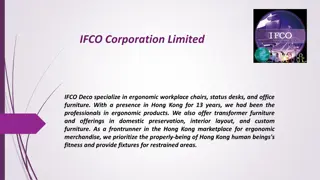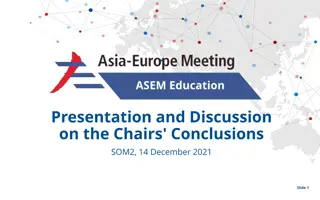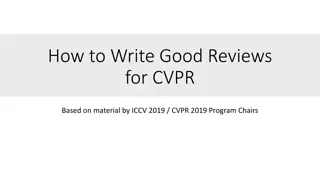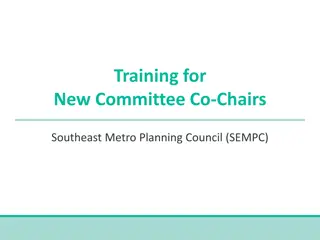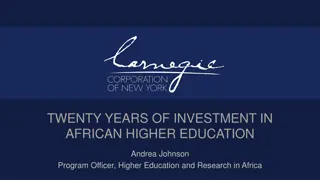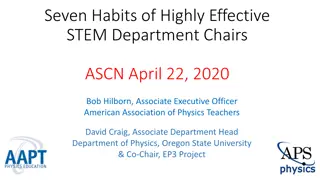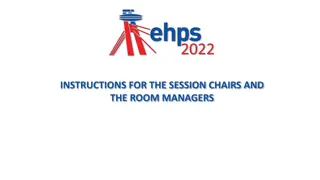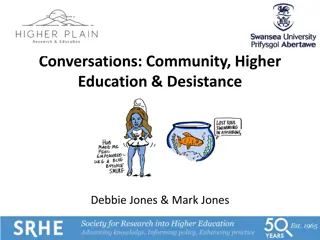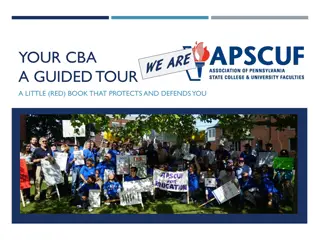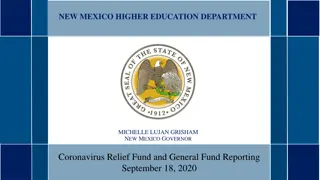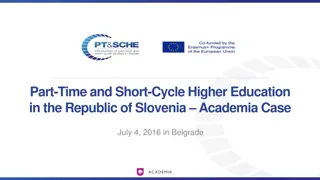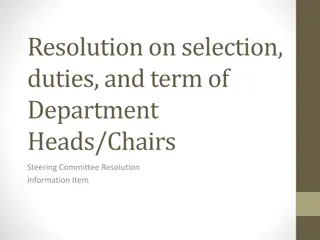Insights for New Department Chairs in Higher Education
As a new Chair in Kinesiology, facing administrative challenges, the key lessons learned include understanding organizational structures, familiarizing with crucial policies, and mastering reporting systems. Building interpersonal relationships and adapting to uncertainties like the pandemic are also highlighted. These insights shed light on navigating the complex landscape of higher education leadership.
Download Presentation

Please find below an Image/Link to download the presentation.
The content on the website is provided AS IS for your information and personal use only. It may not be sold, licensed, or shared on other websites without obtaining consent from the author.If you encounter any issues during the download, it is possible that the publisher has removed the file from their server.
You are allowed to download the files provided on this website for personal or commercial use, subject to the condition that they are used lawfully. All files are the property of their respective owners.
The content on the website is provided AS IS for your information and personal use only. It may not be sold, licensed, or shared on other websites without obtaining consent from the author.
E N D
Presentation Transcript
Things I Wish I Had Known as A New Chair August 20, 2021 Rosa M Angulo-Barroso (Kinesiology) Sal Esparza (Health Sciences) AJ Kim (Theatre)
Kinesiology My experience as a new department Chair Let s start with a little context about my department The Department of Kinesiology is a large and diverse department with about 100 instructors and close to 2000 students, 5 options, two Master programs, and a Community-Service-Teaching- Research Center. Our facilities are very large and complex due to physical activity classes, and it is partially shared with Athletics (a super power at CSUN) and the RTM Department. When I became the new Chair, the dialog between the Department and the College was very deteriorated to the point of no communication. In addition, two relatively new tenure track faculty resigned during my 1-year tenure. Furthermore, due to lack of proactive diligence from the part of administrative CSUN a new Master program had to be cancelled and postponed . As you can imagine, it has not been an easy year as a new Chair of the Department.
I wish I had known. . 1. Who is who at the administrative level so I started an informal repository of names and contact info for important people at the CSUN level (see Picture below) 2. What are the important pieces of the CBA, Section 600 and Section 700 as a Dept Chair. Make sure you become familiar with https://www.csun.edu/faculty-affairs/policies 3. How to effectively look for information related to my job it takes time to know where to go in the CSUN website to find out the needed information, and how to navigate the CSUN Counts dashboards
I wish I had known 4. How to run the different reports to build and check the SOC I still rely on my department coordinator 5. How to create a comprehensive deadline calendar for all the required/policy issues related to FTF, PTF and staff. I had to build it as I was doing, which is not very useful. 6. That unless I force myself to set up time aside for (1) creating a strategic plan for the department, and (2) research activities, these things will not happen 7. That as a Dept Chair you have almost no decision power, but you can however be a nagging requester that finally/hopefully will be heard 8. That a pandemic just started and was going to be with us for a long time!!!! Creating uncertainty, and testing everyone s patience
Whos Who Chart
INTERPERSONAL RELATIONSHIPS IN HIGHER EDUCATION A group of anarchist held together by a common Health Sciences parking lot. Background No wo/man is an island. When groups of people work together, interpersonal conflicts are bound to arise. Conflicts arise for a variety of reasons: Poor communication** Personality clashes Different work styles and values Unhealthy workplace competition
Five quick tips to help academic leaders wisely manage interpersonal conflict and dispute among colleagues: 1. Step back and assess 2. Prepare 3. Stay calm and stick to facts 4. Use low-key language 5. Stay on the high road
Theatre I wish I had known . . . The global pandemic would not end in 2020!
Self-Care! Download a meditation app on your cell. Set aside a block of time for daily walks or other activities. Build a support system family, friends, and colleagues. It s ok to not have answers right away. Mistakes are petition-able at CSUN!
Self-Care! Some people come in your life as blessings, some as lessons. Mother Teresa When anger rises, think of the consequences. Confucius Keep smiling; it keeps your friends happy and makes your enemies worry. --CSUN Emeritus Faculty 28 years ago Always forgive your enemies, nothing annoys them so much. --Oscar Wilde Forget, forgive, conclude, and be agreed. Shakespeare
Self-Care! The end of labor is to gain leisure! Aristotle Use your vacation time!
